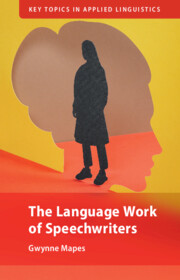Refine search
Actions for selected content:
495 results
7 - The Rise and Fall of the ‘Octopus Plan’
- from Part III - Perspectives from the Right
-
-
- Book:
- Writing Politics in Modern Britain
- Published online:
- 22 December 2025
- Print publication:
- 29 January 2026, pp 149-170
-
- Chapter
- Export citation
9 - Populism and Trans-national Solidarity
-
-
- Book:
- The Question of Solidarity in Law and Politics
- Published online:
- 22 December 2025
- Print publication:
- 29 January 2026, pp 178-208
-
- Chapter
-
- You have access
- Open access
- HTML
- Export citation
1 - Making Sense of Disability and Ableism
-
- Book:
- After Disability Rights
- Published online:
- 19 December 2025
- Print publication:
- 22 January 2026, pp 17-35
-
- Chapter
- Export citation

The Question of Solidarity in Law and Politics
-
- Published online:
- 22 December 2025
- Print publication:
- 29 January 2026
-
- Book
-
- You have access
- Open access
- Export citation
New South Governors and the Evolution of School Choice, 1980-1996
-
- Journal:
- History of Education Quarterly , First View
- Published online by Cambridge University Press:
- 09 December 2025, pp. 1-25
-
- Article
- Export citation
Ishimaru Shinji and the “Populist Playbook”
-
- Journal:
- Asia-Pacific Journal / Volume 23 / 2025
- Published online by Cambridge University Press:
- 02 December 2025, e25
-
- Article
-
- You have access
- Open access
- HTML
- Export citation
From New Left to Social Enterprise: A Conceptual History of the Industrial Common Ownership Movement, 1971–2001
-
- Journal:
- Enterprise & Society , First View
- Published online by Cambridge University Press:
- 02 December 2025, pp. 1-30
-
- Article
-
- You have access
- Open access
- HTML
- Export citation
Ririchan the “Grantee Gal”: Post-Feminism, Social Media, and the Celebrification of a Female Fraudster in Neoliberal Japan
-
- Journal:
- Asia-Pacific Journal / Volume 23 / 2025
- Published online by Cambridge University Press:
- 25 November 2025, e21
-
- Article
-
- You have access
- Open access
- HTML
- Export citation
Introduction: Human Rights and Distributive Justice
-
- Book:
- In Defense of Economic and Social Human Rights
- Published online:
- 06 November 2025
- Print publication:
- 20 November 2025, pp 1-30
-
- Chapter
- Export citation
Just Accounting
-
- Journal:
- Business and Human Rights Journal / Volume 10 / Issue 2-3 / October 2025
- Published online by Cambridge University Press:
- 20 November 2025, pp. 396-406
-
- Article
-
- You have access
- Open access
- HTML
- Export citation
2 - Platform City People
- from Part I - Conceptualizing the Digital Human
-
-
- Book:
- Being Human in the Digital World
- Published online:
- 11 November 2025
- Print publication:
- 20 November 2025, pp 13-27
-
- Chapter
-
- You have access
- Open access
- HTML
- Export citation

The Language Work of Speechwriters
-
- Published online:
- 31 October 2025
- Print publication:
- 14 August 2025
3 - A Biography of Law
- from Part II - In the Court of Law
-
- Book:
- Moral Autopsy
- Published online:
- 18 November 2025
- Print publication:
- 30 October 2025, pp 135-161
-
- Chapter
- Export citation
3 - Liberalism(s) and International Security
- from Part I - Security in Theory
-
- Book:
- Understanding International Security
- Published online:
- 11 October 2025
- Print publication:
- 30 October 2025, pp 40-59
-
- Chapter
- Export citation
Policy Reform After Structural Adjustment in Zambia: The Politics of Restoring a Statist Development Agenda, 2011–2014
-
- Journal:
- African Studies Review , First View
- Published online by Cambridge University Press:
- 15 October 2025, pp. 1-22
-
- Article
-
- You have access
- Open access
- HTML
- Export citation
Private Property Rights in Company Ownership in Nigeria: Neoliberal Policies and Structural Injustice
-
- Journal:
- Journal of African Law , First View
- Published online by Cambridge University Press:
- 10 October 2025, pp. 1-20
-
- Article
-
- You have access
- Open access
- HTML
- Export citation
Resilience and transnational financial regulation: proceed with caution
-
- Journal:
- International Journal of Law in Context , First View
- Published online by Cambridge University Press:
- 10 October 2025, pp. 1-20
-
- Article
-
- You have access
- Open access
- HTML
- Export citation
Cultural Autonomy, Zeitgeist and Simulation Politics: Russia as a Specimen
-
- Journal:
- Nationalities Papers / Volume 53 / Issue 6 / November 2025
- Published online by Cambridge University Press:
- 22 September 2025, pp. 1396-1414
-
- Article
-
- You have access
- Open access
- HTML
- Export citation
3 - Christian Democratic Solidarity
-
- Book:
- Latin America and Human Rights Politics in West Germany, 1973–1990
- Published online:
- 18 October 2025
- Print publication:
- 18 September 2025, pp 112-144
-
- Chapter
- Export citation
Epilogue
-
- Book:
- Latin America and Human Rights Politics in West Germany, 1973–1990
- Published online:
- 18 October 2025
- Print publication:
- 18 September 2025, pp 305-322
-
- Chapter
- Export citation
